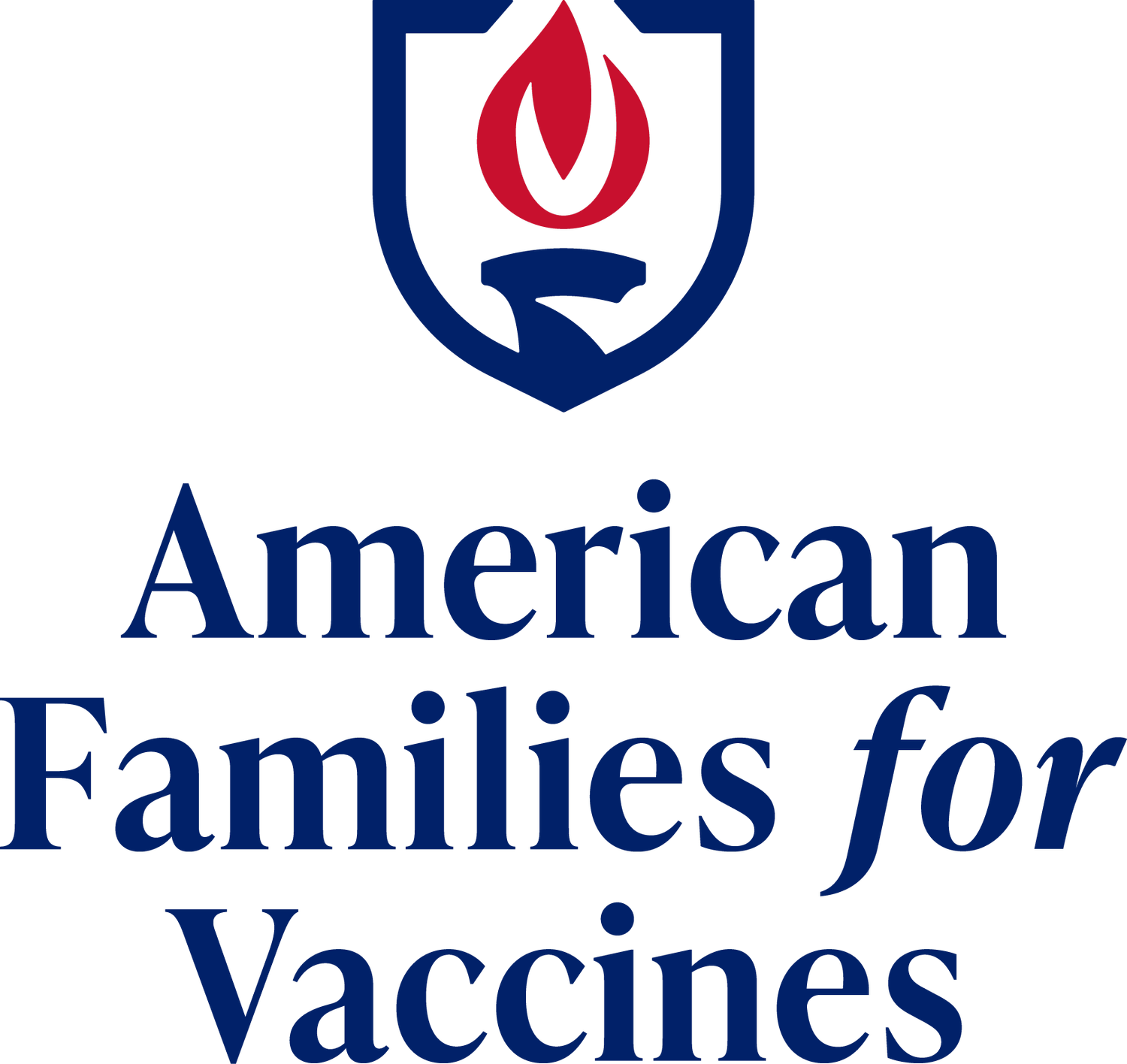AFV Comment to ACIP
Children across the country are at risk of losing timely access to lifesaving vaccines unless national immunization recommendations remain strong, consistent, and grounded in scientific evidence. The vaccines on today’s child and adolescent schedule are backed by rigorous clinical research demonstrating clear benefit to long-term health and well-being (Children’s Hospital of Philadelphia, 2025; Orenstein et al., Plotkin’s Vaccines). Weakening or limiting recommendations would undermine access, create confusion, and leave families vulnerable to preventable diseases.
American Families for Vaccines is a national, non-partisan organization dedicated to organizing the pro-vaccine majority of families, clinicians, experts, and community leaders to defend and promote pro-vaccine policies in every state. While vocal misinformation drives headlines, the data are clear: the vast majority of Americans support strong vaccine protections. The KFF/The Washington Post Survey of Parents released in October 2025 showed that 83% of parents immunize their children according to the recommended schedule, and significant majorities expressed confidence in routine vaccines including polio (85%) and MMR (83%) (KFF & The Washington Post. Survey of Parents on Childhood Vaccines. 2025).
We cannot allow policy to shift based on false information. Consistent national recommendations are essential for insurance coverage, clinical practice, and state-level access. Without them, children—especially in underserved and rural communities—face immediate and unnecessary barriers to care.
An overwhelming body of peer-reviewed science has shown—repeatedly and conclusively—that vaccines do not cause autism. Large, high-quality studies spanning hundreds of thousands of children, including long-term cohort studies, case-control studies, and population-based analyses, find no association between any vaccine (including MMR and thimerosal-containing vaccines) and autism spectrum disorder (Madsen et al., NEJM, 2002; Taylor et al., Lancet, 2014; Hviid et al., Annals of Internal Medicine, 2019). Claims linking vaccines to autism have been scientifically disproven for more than two decades.
The stakes are especially high for newborns. The hepatitis B vaccine birth dose is one of the most powerful tools we have to prevent lifelong liver disease and cancer. Administering the vaccine within 24 hours of birth sharply reduces the risk of infant and childhood infection, which can occur through casual contact with microscopic amounts of blood. Before the birth dose recommendation about 18,000 children under 10 years old were infected with hepatitis B every year in the U.S., half of those infections came from unrecognized sources (Children’s Hospital of Philadelphia, 2025). Infants who become infected face a 90% likelihood of chronic hepatitis B and dramatically higher risks of cirrhosis and liver cancer later in life (Schillie et al., Pediatrics, 2015). Delays cost lives.
We urgently call for action to preserve access to the combination vaccines that reduce the overall number of vaccines a child receives, while increasing the likelihood they stay on schedule and receive protection when it is most needed. Research consistently shows that combination vaccines like MMRV are safe, effective, and critical for reducing missed vaccinations—especially for busy families and communities with limited healthcare access (Klein et al., Pediatrics, 2010; Marshall et al., Pediatric Infectious Disease Journal, 2007, Maman et al., Human Vaccines and Immunotherapeutics, 2015). The MMRV recommendation for children under 4 should be reinstated.
The majority of Americans want strong vaccine policies, and American Families for Vaccines is mobilizing that majority to defend access, counter misinformation, and ensure every family can rely on science—not politics—to keep our children safe.
Families deserve uninterrupted access to every vaccine proven to protect their children from preventable disease, disability, and cancer. Expert advisors must act with urgency to preserve strong, science-driven national recommendations and ensure widespread, unhindered access to all vaccines on the schedule. The cost of hesitation is measured in preventable infections and preventable loss.
References:
Children’s Hospital of Philadelphia. Of Clinical Trials, Package Inserts and Safe Vaccines: Addressing Some Things You May Have Heard. Parents PACK. 2025
Orenstein WA et al.. Plotkin’s Vaccines. 8th ed.
Kaiser Family Foundation & The Washington Post. Survey of Parents: July 18–August 4, 2025. Conducted in partnership with Ipsos KnowledgePanel®. July 18–Aug. 4 2025. Washington DC: KFF; 2025.
Madsen KM et al. A population-based study of Measles, Mumps, and Rubella Vaccination and autism. NEJM. 2002.
Taylor LE et al. Vaccines are not associated with autism: an evidence-based meta-analysis of case-control and cohort studies. Vaccine. 2014.
Hviid A et al. Measles, Mumps, Rubella Vaccination and Autism: A Nationwide Cohort Study. Ann Intern Med. 2019.
Children’s Hospital of Philadelphia. 9,000 Reasons for Routine Childhood Hepatitis B Vaccination. Parents PACK. 2025
Schillie S et al. Outcomes of infants born to women infected with hepatitis B. Pediatrics. 2015.
Klein NP et al. Measles-mumps-rubella-varicella combination vaccine and the risk of febrile seizures. Pediatrics. 2010.
Marshall GS et al. Use of combination vaccines is associated with improved coverage rates. Pediatric Infectious Disease Journal. 2007.
Maman K et al. The value of childhood combination vaccines: From beliefs to evidence. Human Vaccines and Immunotherapeutics. 2015.

